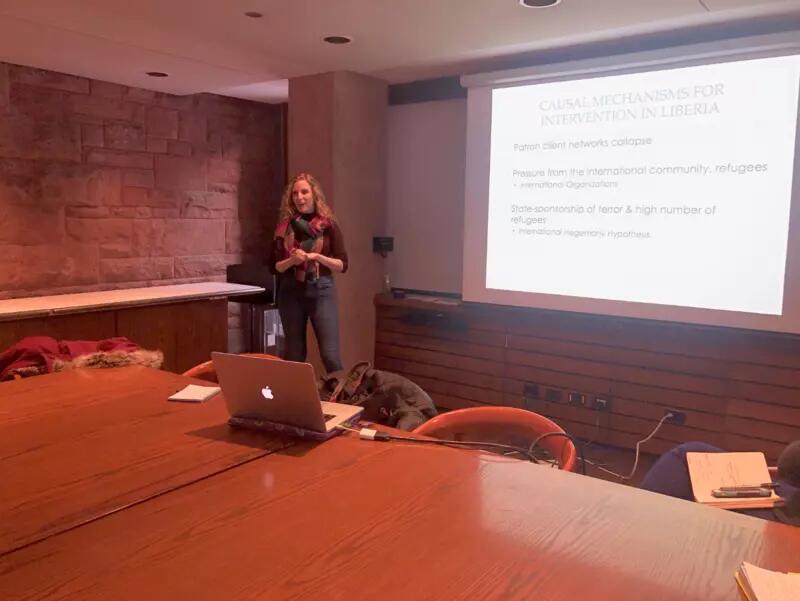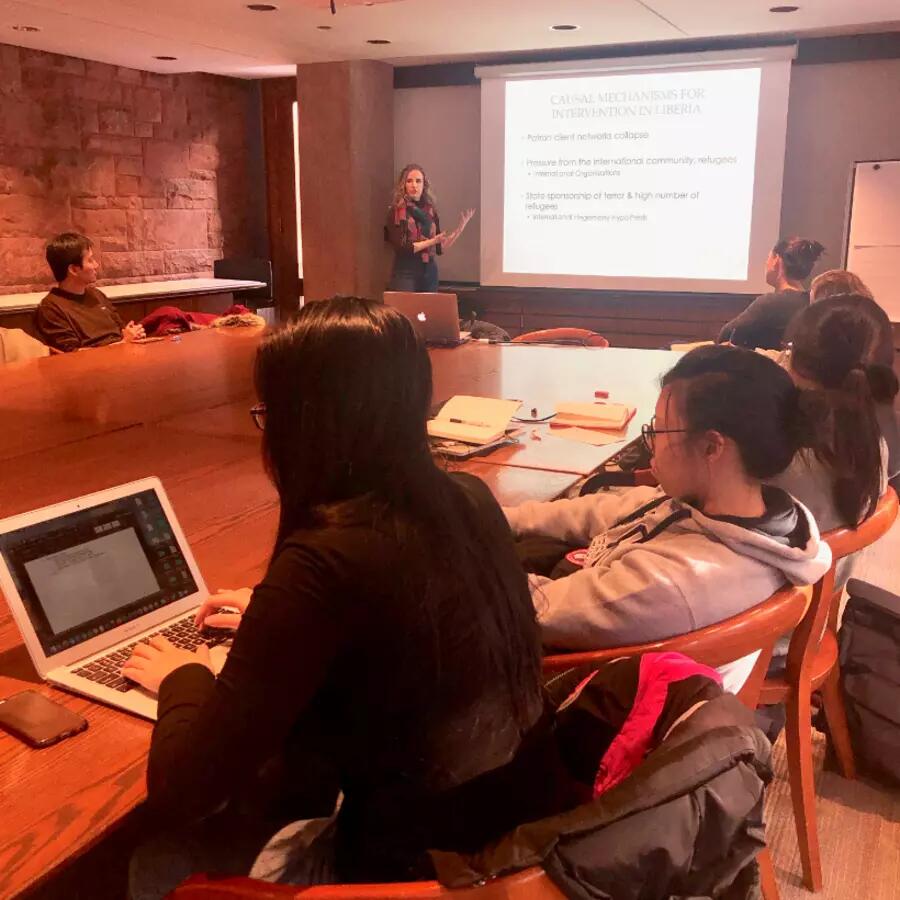By Charlotte Astle
Michele St-Amant is a third-year Ph.D. student in the Department of Political Science focusing on International Relations and Comparative Politics. Her fields of interest include US foreign policy, great power military interventions, failed and weak states, great power conflicts and competition, great power financial statecraft, and the great power politics of natural resources and water. Her research usually involves large-n data analysis, and she has been involved in other collaborative data collection and analysis projects while at the University of Toronto. She completed her undergraduate degree with majors in political science, history, and psychology at Hofstra University in 2015, and her Master’s Degree in Political Science at George Mason University in 2017.

A failed state essentially takes the opposite of Weber’s definition of a state: it lacks a monopoly of the legitimate use of physical force within a given territory.
The two primary solutions to state failure are typically (1) military intervention to stabilize the situation, and (2) financial aid. Michele St-Amant’s research focused on United States military intervention in failed states.
The CIA invested money into an initiative that would produce research datasets that predict failed states called the Political Instability Task Force (PITF). The system claimed to predict failed states with 80% accuracy. Michele’s preliminary research shows that US intervention in failed states is not predictable and is not based on the data collected by the PITF.
Because state failure is not what predictably determines US intervention, what does? She sought to answer this question by evaluating situations in which the US did intervene, finding that the US sends its smallest use of force to the most fragile states with higher levels in terrorism in them. Its major forces are sent to states that have higher levels of terrorism, numbers of refugees leaving the country, and highest number of barrels imported to the US.
Her research also included an interesting case study about Liberia, a state that has a history of being closely tied to the US militarily, financially and politically. Interestingly, once the Cold War ended and the US no longer needed military bases in Liberia, the US removed the bulk of its aid. This led to political corruption in the country, and in 1990 a civil war broke out. Michele noted that the US did not intervene until 2003, once it was discovered that Charles Taylor, the Prime Minister at the time, had been sponsoring Al Qaeda.

This case study fills in data missed by Michele’s large-n regression analysis, because Liberia, while having lower levels of terror, was still intervened in with large military force. The data overall does not determine when larger US contingents of force intervene, but it does predict smaller contingents.
A point brought up during the discussion period was the fact that the institutional mechanics of Liberia were not accounted for when determining the cause of its civil war outbreak. The point Michele wanted to make with the case study was that Liberia and the US had a long intertwined history, and yet the US did not intervene in its civil conflict (which was arguably cause by US removal of aid) until terror was involved. This might be explained by the ‘War on Terror’ instigated in the US under Bush, and the focus of eradication of terrorism in both domestic and international US policy.
Thank you to Michele for presenting her pertinent research to undergraduate PCJ students and the Trudeau Centre community!